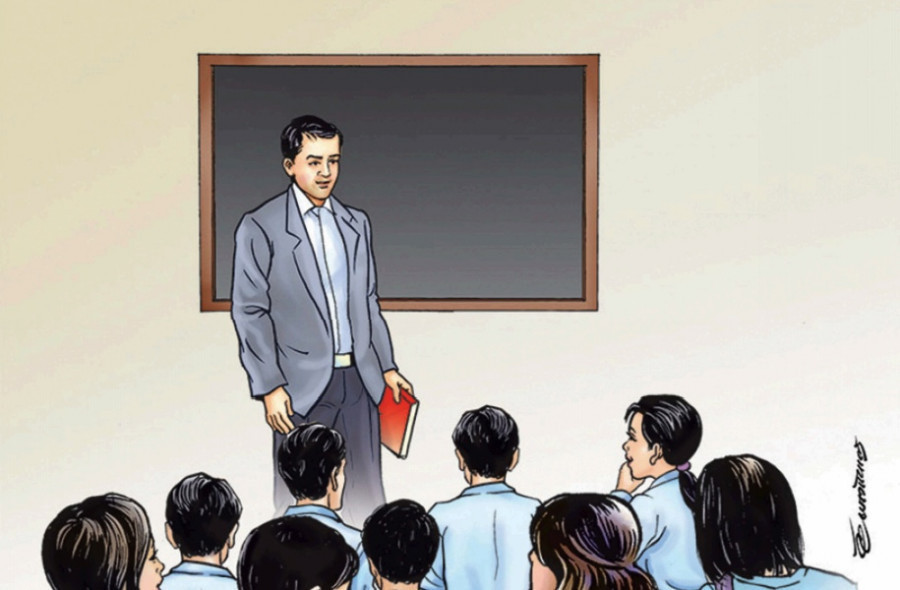Editorial
Paradox of free education
Government schools haven’t been able to operate in a manner that would guarantee schooling at no cost.
There is no vaguer idea of free education than what is reflected in the Nepali system. While the constitution ensures free and compulsory education, government schools in Nepal haven’t been able to operate in a manner that would guarantee schooling at no cost. In an example of a government school cited in the Post, of the 151 teachers that serve a total of 3,200 students, only 40 teachers are hired directly by the government. This means that the salaries of the remaining 111 teachers need to be covered through donations from parents and guardians, which technically turns a non-fee-paying government school into a fee-paying school.
It is one thing to insert appealing words in the constitution to talk about the essence of free and compulsory education, but quite the other to be unable to provide funds to pay teachers’ salaries. The blame needs to be shouldered by the government for not prioritising equality in education. While the authorities promised to earmark 20 percent of the national budget for education, they set aside a little less than 11 percent under this heading in the current fiscal year's total budget of Rs1.793 trillion. And even though most of this money goes towards paying salaries, schools are grappling with an unusual shortfall making them dependent on hand-outs from guardians and parents.
This toxic concoction of relying partly on the government and covering the shortfall with donations raises the issue of staff motivation who are not just dealing with low pay scales, but more often than not, are being paid nothing at all in case of a funding deficit. The authorities need to understand that keeping the teachers and school staff financially insecure will undoubtedly directly impact the morale of the students, causing an adverse effect on the quality of output. Quality free education can equip children and allow them to compete for life’s opportunities fairly.
To improve the overall quality of education in the country, the government should immerse itself in the cause of hiring the best minds to pique the senses of curious young pupils. But improving and promoting the quality of public education hasn’t been the government’s priority. The mushrooming of private educational institutions over the past few decades has pushed the country towards further social inequality.
Little has been done over the years to formulate a Federal Education Act which would help define the responsibilities of the various tiers of government and facilitate the distribution of resources. Even as we wait for the passage of federal laws, no good will ever come out of well-defined laws as long as the politicians continue to suffer from a moral deficit. Hence the priority should be to shun any acts that would encourage petty personal gain at the expense of the greater good. While the promise to provide for the public has long been overdue, there will be no impetus to improve the facilities of public educational institutions as long as politicians continue to profit from private educational institutions.




 13.12°C Kathmandu
13.12°C Kathmandu














